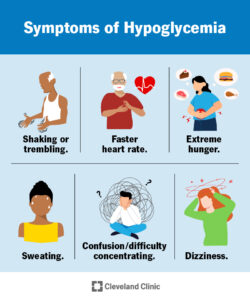New Covid symptoms include fatigue, headache, sore throat, and loss of taste and smell. As the Covid-19 pandemic persists, researchers and medical professionals have identified new symptoms that may indicate a possible infection.
Apart from the commonly known symptoms such as fever, cough, and difficulty breathing, individuals experiencing fatigue, headache, sore throat, and loss of taste or smell should also be vigilant. These symptoms can vary in severity and may occur even in the absence of the traditional signs.
It is crucial to stay informed about the evolving understanding of Covid symptoms to ensure proper diagnosis, treatment, and prevention. By recognizing new symptoms and seeking timely medical attention, individuals can contribute to curbing the spread of the virus and protecting their own health and the health of others.

Credit: www.bu.edu
Table of Contents
1. The Evolving Landscape Of Covid Symptoms
With the emergence of new Covid variants, the list of symptoms associated with the virus has expanded beyond the classics. It is crucial to stay updated on the latest symptoms to ensure early detection and prompt treatment.
Overview of the new variant and its impact
The new variant of Covid-19 has brought about a surge in emerging symptoms that differ from the previously recognized signs. This variant exhibits distinctive characteristics, and it is important to be aware of the specific symptoms associated with it. By staying informed through reliable sources, such as health authorities and official medical websites, you can stay proactive in identifying any new symptoms that may arise.
Regularly checking for updates on symptoms will enable individuals to take necessary precautions and seek medical assistance promptly if any new or unusual symptoms arise.
2. Unveiling Unusual Signs Of Covid Infection
Recognition and understanding of atypical symptoms are crucial for identifying potential Covid infections. Alongside the well-known symptoms like fever, cough, and loss of taste or smell, there are several lesser-known signs to watch out for. These unusual symptoms may include fatigue, sore throat, diarrhea, headache, or even skin rashes.
Early detection plays a significant role in curbing the spread of the virus. Timely action such as self-isolating, getting tested, and seeking medical assistance can help prevent further transmission of Covid-19. It is essential to stay vigilant and mindful of any changes in our health, even if they seem unrelated to Covid-19. Recognizing the subtle cues that could indicate a Covid infection can provide individuals with the opportunity to take appropriate measures to protect themselves and others.
3. Delving Into Disturbing Symptoms Of New Covid Variant
The distinct symptomatology of the new Covid variant is causing concern among healthcare professionals. In addition to the usual respiratory symptoms such as cough and shortness of breath, the new strain is showing a rise in gastrointestinal symptoms. Patients infected with the new variant may experience diarrhea, vomiting, and abdominal pain. These symptoms can sometimes be the only indication of an infection, making it important for individuals to be aware of these potential signs.
In addition to gastrointestinal symptoms, uncommon neurological manifestations have also been reported in patients with the new strain. These include headaches, dizziness, and loss of taste or smell. These symptoms should not be ignored, as they can indicate a more severe infection or potential long-term consequences.
| Distinct Symptoms of New Covid Variant |
|---|
| Gastrointestinal symptoms |
| – Diarrhea |
| – Vomiting |
| – Abdominal pain |
| Uncommon neurological manifestations |
| – Headaches |
| – Dizziness |
| – Loss of taste or smell |
4. Beyond Respiratory Distress: Understanding Widespread Impacts
4. Beyond Respiratory Distress: Understanding Widespread Impacts
The ongoing Covid-19 pandemic has led to an increased understanding of the wide-ranging impacts of the virus beyond respiratory distress. One significant aspect is the cardiac complications that can arise in individuals diagnosed with Covid-19. These complications can have long-term implications on heart health, even in individuals without pre-existing cardiac conditions.
In addition to respiratory and cardiac concerns, individuals may experience persistent symptoms even after recovering from the acute stage of Covid-19. Known as “Long Covid,” this condition encompasses a range of symptoms, such as fatigue, brain fog, and muscle weakness. The long-term implications of these persistent symptoms are not yet fully understood, and ongoing research aims to identify potential treatments and support mechanisms.
Covid-19 has also been found to affect multiple organs, not just the respiratory system. The virus can impact various organs, including the heart, kidneys, liver, and brain. This multi-organ involvement can have long-term consequences for individuals, potentially leading to chronic health conditions and requiring continued medical care even after the initial infection has subsided.
5. Differentiating Covid Symptoms From Other Common Ailments
With the ongoing pandemic, it is crucial to be able to distinguish Covid symptoms from other common ailments. Many people often confuse Covid symptoms with flu and colds, making accurate diagnosis difficult. It is important to note that while some symptoms may overlap, there are specific signs that can help differentiate Covid from flu and colds. Covid symptoms include fever, persistent cough, loss of taste or smell, fatigue, headache, sore throat, and shortness of breath. On the other hand, flu symptoms are characterized by sudden onset of fever, body aches, chills, fatigue, nasal congestion, and sore throat. It’s also essential to disentangle Covid symptoms from seasonal allergies, as they may present with similar signs like sneezing and itchy or watery eyes. If you experience any symptoms, it is recommended to seek medical guidance for accurate diagnosis and further instructions.
6. The Critical Role Of Monitoring And Reporting Symptoms
Monitoring and reporting symptoms play a critical role in managing the spread of Covid-19. Early identification of symptoms is crucial for timely intervention and preventing further transmission. Utilizing symptom tracking apps and digital health tools can greatly assist in self-monitoring and identifying potential Covid-19 symptoms.
Tracking apps enable individuals to record their symptoms and compare them with known Covid-19 symptoms, helping to alert them to potential infection. These tools provide a structured way to monitor symptoms, allowing for easy identification of any changes or new symptoms that may arise.
Prompt reporting of symptoms is equally important in protecting oneself and others. By reporting symptoms to health authorities or healthcare providers, appropriate action can be taken to prevent the spread of the virus. Quick reporting allows for efficient contact tracing and identification of potential clusters or hotspots.
Self-monitoring and reporting symptoms are crucial in our collective efforts to combat Covid-19. By utilizing digital tools and promptly reporting any changes, we can actively contribute to the management and control of this pandemic.
7. Red Flags: Emergency Warning Signs You Shouldn’t Ignore
7. Red Flags: Emergency Warning Signs You Shouldn’t Ignore
Identifying severe symptoms that require immediate medical attention:
- Fever above 101 degrees Fahrenheit
- Difficulty breathing or shortness of breath
- Severe chest pain or pressure
- Confusion or inability to be woken up
- Bluish lips or face
- Severe abdominal pain
- Sudden dizziness or difficulty in walking
Understanding the distinction between urgent and non-urgent symptoms:
- Identifying symptoms that can be managed at home with rest and self-care measures
- Recognizing symptoms indicating the need for medical evaluation and treatment
Knowing when to seek emergency care for worsening conditions:
- Noticing symptoms that worsen rapidly or significantly
- Recognizing signs of deteriorating health that may indicate a medical emergency
- Acting promptly to seek medical assistance
8. Navigating The Psychological Impact Of New Covid Symptoms
New Covid Symptoms can not only take a physical toll on the body, but also have a significant psychological impact. Experiencing unfamiliar symptoms can be emotionally challenging and can lead to anxiety and fear. It is important to remember that these feelings are valid and normal given the circumstances.
When dealing with anxiety and fear surrounding Covid symptoms, there are coping strategies that can help. Practicing self-care, such as getting enough sleep, eating well, and exercising regularly, can contribute to overall wellbeing. Additionally, engaging in activities that promote relaxation, such as deep breathing exercises and mindfulness meditation, can help to reduce stress levels. It is also important to stay informed but limit exposure to excessive media coverage, as this can contribute to heightened anxiety.
Seeking support and mental health resources is crucial during the pandemic. Reach out to trusted friends and family members for emotional support. Utilize online mental health platforms that offer virtual counseling sessions or support groups. Many healthcare providers also offer telehealth services for individuals seeking professional help. Remember, it is okay to ask for support when needed.
9. Promoting A Holistic Approach To Covid Symptom Management
The management of Covid symptoms goes beyond traditional medical interventions. A holistic approach that encompasses lifestyle changes can contribute significantly to symptom relief and overall well-being. One vital area to focus on is nutrition. A well-balanced diet rich in vitamins, minerals, and antioxidants can boost immune health and enhance the body’s defense against the virus. Additionally, regular exercise has proven benefits in boosting resilience and improving overall physical health. Engaging in activities such as brisk walking or home workouts can strengthen the immune system and increase the body’s ability to fight off infections. Moreover, it is important to prioritize stress management and mental well-being. Practicing mindfulness techniques, engaging in hobbies, and seeking support from loved ones can help combat the negative effects of stress on the immune system. Embracing a holistic approach that addresses nutrition, exercise, and mental well-being can play a crucial role in managing Covid symptoms and promoting overall health.
10. Conclusion: Being Aware And Adapting To The Ever-changing Landscape
The importance of staying informed about new Covid symptoms:
Taking proactive measures to protect yourself and others is crucial in the ongoing battle against Covid-19. With the virus continually evolving, it’s essential to stay up to date with the latest information regarding new symptoms. The more aware you are, the better equipped you will be to detect the signs and seek appropriate medical attention.
Adapting lifestyle habits is equally important in line with evolving guidelines. By following recommended safety protocols such as wearing masks, practicing social distancing, and frequently washing hands, you can significantly reduce the risk of contracting and spreading the virus.
Remember, our understanding of Covid-19 is continuously evolving, and new symptoms may emerge over time. Being vigilant and staying informed about these changes is crucial in protecting yourself and the community. Together, we can navigate this ever-changing landscape of the pandemic.
Frequently Asked Questions Of New Covid Symptoms
Q: Can Covid Cause Different Symptoms In Different People?
A: Yes, Covid can cause a wide range of symptoms that can vary from person to person. While some may experience fever, cough, and loss of taste or smell, others may have shortness of breath, body aches, or gastrointestinal issues.
It is important to remember that symptoms can range from mild to severe.
Q: Are There New Symptoms Associated With Covid?
A: Yes, new symptoms have been identified in some Covid patients. Apart from the commonly known symptoms, some individuals have reported experiencing skin rashes, eye redness, and even neurological symptoms such as headaches and confusion. If you have any concerns or unusual symptoms, reach out to your healthcare provider.
Q: What Should I Do If I Experience Covid Symptoms?
A: If you experience Covid symptoms, it is important to take immediate action. Stay at home, isolate yourself from others, and monitor your symptoms closely. Contact your healthcare provider for guidance on testing and further medical advice. Follow local health guidelines to help stop the spread of the virus.
Q: How Long Do Covid Symptoms Usually Last?
A: The duration of Covid symptoms can vary depending on the individual. For most people, symptoms typically last for about 10 to 14 days. However, it is important to note that some individuals may experience prolonged symptoms or develop complications.
If your symptoms persist or worsen, consult your healthcare provider.
Conclusion
As we navigate through the evolving landscape of the Covid-19 pandemic, it is crucial to stay informed about the latest symptoms. This blog post has shed light on some newer symptoms that have emerged in recent times. By recognizing these symptoms, we can take prompt action and prioritize our health.
Stay vigilant, stay informed, and together we can overcome this challenging time.








